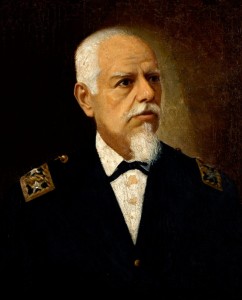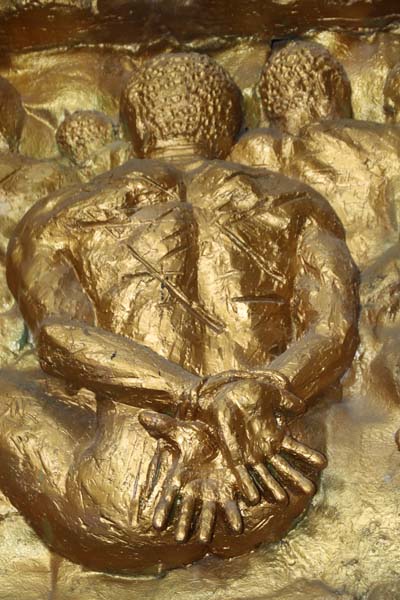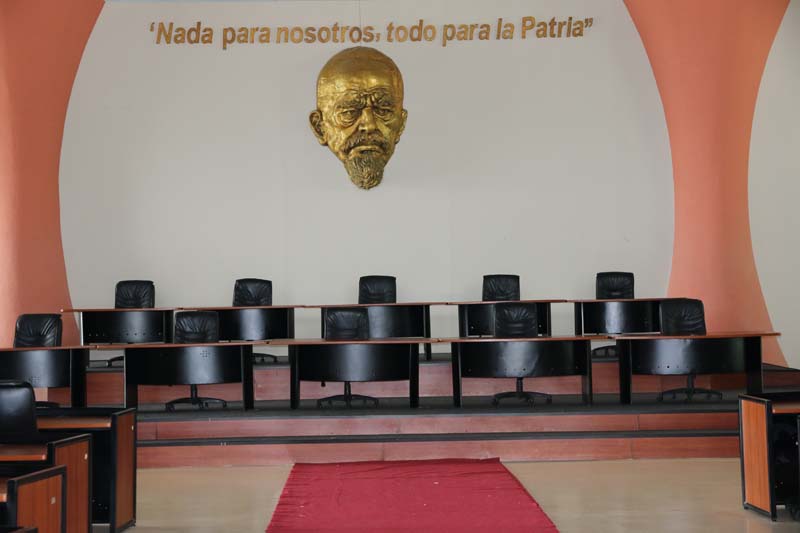As part of our visit to Montecristi we went to the Museum and the Mausoleum for José Eloy Alfaro Delgado. He was the President of Ecuador from from 1895 to 1901 and from 1906 to 1911. He became one of the strongest opponents of pro-Catholic conservative President Gabriel Garcia Moreno (1821–1875). For his central role in the Liberal Revolution of 1895 and for having fought conservatism for almost 30 years, he is known as the Viejo Luchador (“Old Warrior”).

The mausoleum was absolutely beautiful with the artwork depicting the tradition and history of the country but I was taken back by the repeated depictions of Africans in bondage and with whip marks clearly etched into the bronze backs. Our guide, when asked, admitted that there was slavery in ecuador but had no further comment. It wasn’t until we were back home that we started to learn more.
Apparently slavery arrived in pan-America during the the Spanish colonial era. It was during Alfaro’s reign that slavery was finally abolished. Decendants of the slave trade (Afro-Ecuadorians) make up between 5 and 10 percent of Ecuadors population and from what I understand still are exposed to different levels of prejudice. Knowing that the engravings meant that the slave trade had ended made me feel less shocked by their brutality but none the less no more proud of what humanity is capable of.

Across from the mausoleum was a musuem and a large hall that was built for one purpose, used once and then never again for the same assembly. The 2008 constitution was formulated and signed here. The party under the new leadership of Rafael Correa convened in the assembly hall in Montecristi and were given six months to draft and present the Constitution for approval. In 2008 they completed the task and the Constitution became law.
The Constitution is the first in the world to recognize legally enforceable Rights of Nature, or ecosystem rights. Article 71-74 prohibits the extraction of non-renewable resources in protected areas. Moreover, the production of monocultures will be avoided for reforestation and rehabilitation of the soil. The state will also protect the intellectual property of collective work based on national biodiversity and begin to recognize the Rights of Nature
Other groundbreaking laws gave new rights to women, same sex relationships and one that surprised me in its meaning where the Constitution guarantees sustainable food sources for all it’s citizens.
Once the constitution was signed the assembly left the hall and never returned. Our guide told us the hall is used for the arts occasionally.


